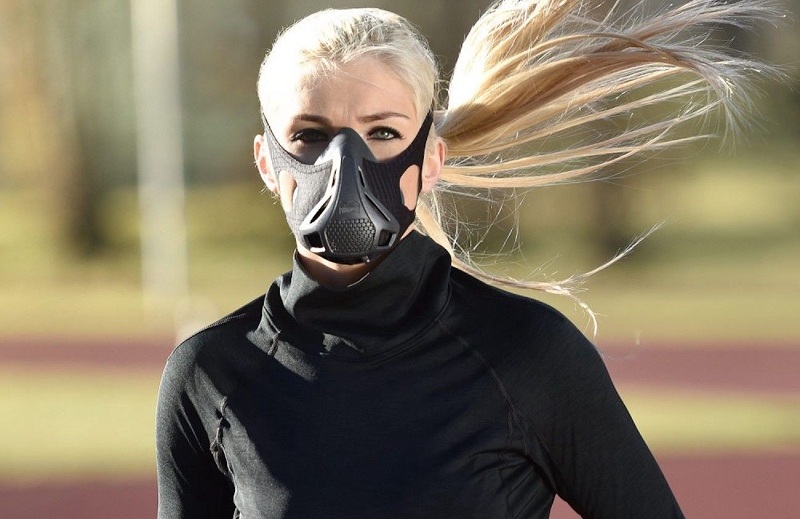
08 May Finally, A Headline You Can Trust (Or Can You…)
 Ed Kornoelje DO
Ed Kornoelje DO
Metro Health-University of Michigan Health Sports Medicine
“How Does Running With a Mask Impact Your Performance?”
“Should I Wear a Mask While Running?”
“Stop Yelling at Runners for Not Wearing Masks!”
“Yes, You Should Wear a Mask When You Run. (Yup, Including You).”
We live in a headline world—TV, print, social media, and many more. The goal of most headlines is to get you interested in watching the report or reading the article (if you’re still reading this maybe mine worked). And that makes sense—if you believe in what you are writing or reporting you want to hook the consumer of the information. But it seems more and more these days that the title may or may not actually represent what is in the story (more often not), or the information being touted as fact may or may not be true as the group of titles above conveys. So what is the best way to sift through any headlines (and should you wear a mask when running)?
Multiple times a day I get “updates” on new stories—mostly COVID-19 related these days. I am sure it’s the same for you. Some of the time the story seems to put forth facts that may or may not square with what seems to be true. So I dig a little more, and go to the source of the “facts”—the person or article which is being referenced. And you know what—much of the time the information from the person or study is misrepresented in the news story. I’m never sure if it is on purpose or accident, but the bottom line is that the title that got me interested in the article about the new information is not even close to representing the information it was based on. The pearl here: go to the source and make your own interpretation of the information without the filter.
Where does that leave us with the headlines above? First, whatever you read from here on out remember to go read the article itself (or better yet the information the article is based on) and don’t just take my word for it. But I will push on with my analysis and trust that a few of you will continue to read—thanks!
Second—let’s take a look at the information in the articles—bottom to top. We should all wear masks when running, one of titles advocates. This article is written by a Food and Fitness director and makes the point that wearing a mask is a sign of solidarity and that “in the grand scheme of the pandemic, it seems like a small sacrifice that’s very worth it.” The article cites a New York Times article on a couple of occasions, but the NYT article is mainly an opinion piece which, while not a problem in its own right, does not have a lot of facts to support the title.
Moving up the list, the next title suggests we should stop shaming runners for not wearing masks. “Whether running with a mask helps stop the spread of the coronavirus is questionable at best,” notes the writer. She quotes and infectious disease specialist, and airborne-infection specialist and an epidemiologist among others. Now just because they are medical specialists does not mean they are always correct, but in general this seems like the type of folks who may help us make informed decisions. “Even in a health care setting, contact is defined by being near someone for a certain amount of time. I would not worry about these fleeting [running near someone] encounters” opines the ID specialist. The article also cites evidence that being outdoors lowers the likelihood of transmission: “The transmission…from the infected to the susceptible is an indoor phenomenon.” There is a lot of space for the virus to go when outdoors, and a lot of air movement to disperse the virus.
Should you wear a mask asks another article? Trying to take a more moderate approach this article uses the CDC guidelines, several medical journal articles, and some common sense (I’m a big fan of that)! They end with a list of five tips for running during a pandemic:
- Know your route before you go and be strategic with your time.
- Keep your distance and put others first.
- Embrace the solo run.
- Keep your immune health top of mind (note: more on this next week).
- Above all, stay home if you’re not feeling well.
The final sentence in the article is a pretty good summary: “Keep in mind, wearing a face mask is no substitute for social distancing and washing your hands…”.
Finally, can wearing a mask actually benefit your running and fitness? Focusing more on the performance end of things, a certified personal trainer notes that “once the mask is removed, the lungs will have the ability to intake and absorb more oxygen, which would most likely result in a performance increase.” The author also notes running often makes the mask wet which “can actually make the mask less effective.” The possible benefit is outweighed by the loss of effectiveness in my opinion.
So what conclusions can we draw from all of this:
- The best way to slow the spread is stay six feet away from others and wash hands—physical distance.
- Masks protect OTHERS from you, and when unable to physical distance in any situation is a good idea to wear. There may also be a small amount of protection conferred on the wearer.
- Being outdoors appears to significantly reduce the ability of the virus to spread from person to person (so get outside)!
- Transmission typically occurs when people spend a little time in close proximity—speeding past, or even jogging more slowly, is not likely to create enough of an exposure to cause a problem.
- Be smart about the time and location of your run—try to pick a time and route that will help you avoid people, and run solo or with whoever you are sheltering with.
- Whether or not you feel wearing a mask is a sign of solidarity and support if up to YOU and no one else.
If you made it this far, thanks for reading. We are all saddened by the death and illness brought on by the COVID-19 virus. Next week we will look at what impact exercise has on the immune system—we will get back to strength training in a few weeks (but keep doing it for now). At Metro Health we continue to be ready to treat COVID-19 patients while continuing to care for all medical conditions. We are seeing more patients in the office each week, and I am happy (and sad) to say I have seen quite a few runners and triathletes this week—happy many of you are still running, but sad that a few of you are injured. If you are injured or have some questions about training call 252-7778 or visit www.metrohealth.net to set up an appointment.
Be active, and look beyond the headlines!